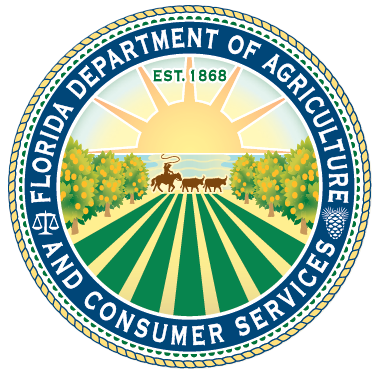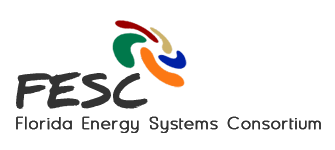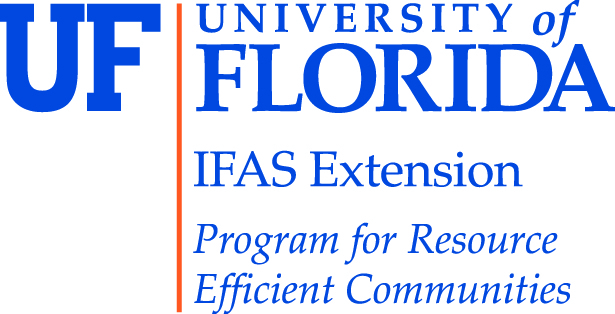Introduction
Home improvements and new home construction are among the most expensive and most site and lifestyle specific consumer purchases you and your family will ever make. Finding not only a good contractor, but more importantly, finding the right contractor to meet your unique needs and personal preferences, is critical to a creating a positive consumer experience and home energy performance outcome.
How to Find
Before approaching any contractor about your potential home improvement project, we encourage you to review the following tips.
- Know Your Needs: If you plan to procure a specific quote for the replacement of one or more existing building systems or technologies, its always a good to compile the key information about the items being replaced. This may include the following: (a) make, model, and serial numbers of appliances and equipment; (b) the date purchased or installed; and (3) the dimensions and characteristics of building components such as insulation, doors, windows, and roof. Taking inventory of these items within your home both increases your confidence as you speak with contractors as well as enhances your ability to see if and when a contractor may be providing irregular or untrustworthy information within their quote.
- Ask for Referrals: Word of mouth referrals are a great way to find good contractors and high quality home improvement products and services directly from other consumers.
- Call References: We’re often quick to ask friends, family, and coworkers for their referral advice. However, don’t forget that any good contractor should be willing to provide a list of references upon request whom you can personally call to inquire about their experiences working with the contractor. Be sure to ask each reference about their feelings on the contractor’s quality of workmanship, customer service, and ability to stay on time and within budget as established in the original quote.
- Verify License Information: The State of Florida requires a wide variety of home improvement related professionals to be properly licensed and trained for the services they will be providing. In another section further down this page, you can learn more about the Florida Department of Business and Professional Regulations (DBPR) and their licensing requirements. Never work with a contractor unless they have an active license in good standing with the DBPR.
- Avoid Remote Quotes: While broad services and ballpark cost figures may be fine to loosely discuss remotely over the phone, a real quote should always come from a skilled contractor representative who visits your home and takes the time to learn your home improvement goals and objectives.
- Always Get Multiple Itemized, Written Quotes: Comparing contractors and their quotes requires firm estimates, in writing, with sufficient itemization to allow for apples-to-apples evaluations to be made.
- Don’t Let Price Take You Prisoner: The lowest quote is not always the best quote. Be sure to compare not only costs, but also customer service, project scheduling, product and service specifications and warranties, and the energy efficiency estimates for the suite of improvement measures being quoted.
- Look for Good Professional Affiliations: Often the best contractors live by a professional creed that learning never ends. They maintain active membership and certification in one or more professional affiliations. Use our Contractor Affiliations Checklist as a guide to your review of the right contractor for your household needs.
- Respectfully Test Their Knowledge: Don’t be shy to respectfully test the building science and home energy efficiency knowledge of each contractor as they evaluate your home and compile the details necessary to create your custom quote.
- Ask About Incentives and Their Workflow in Assisting You to Obtain Them: Its not always a clear path to successfully earn the applicable incentives available at the local, state, and federal levels. Good contractors should already be aware of the current key incentives and should be willing to facilitate the workflow and submission of these incentive applications.
- Consider the Benefits of a Home Performance Evaluation or Inspection: Some home improvements are straightforward and may not require a thorough home performance evaluation, such as blower door testing for air leakage, or home inspection. However, many improvements, especially the technologically complex and costly ones like your air conditioning (HVAC) system, benefit from an evaluation by a qualified professional.
- Consider the Applicability of Existing Green Home Certification Programs: While home improvements can take a wide diversity of forms and functions, major renovation projects are an ideal time to optimize the green features of your home (e.g., energy performance, water performance, indoor environmental quality, renewable energy supply (e.g., solar PV), landscaping, transportation and mobility opportunities). Many green home certification programs offer guidance for interested homeowners, buyers, and renters.
- Ink and Record: Sign (in ink) and save an original copy of your final agreed upon quote and contract.
- Pass It Own: Be a good Floridian and pay forward your new knowledge and experience about your home improvement contractor and project. You may just double down on reducing your ecological footprint by helping others to shrink theirs!
Contractor Licensing
Florida Department of Business and Professional Regulation (DBPR)
Contractor Search
You can conduct a Florida DBPR Licensee Search by name, number, location, and/or license type.
License Types: Occupation Categories and Class Codes
For basic overview of the code system, see Florida DBPR – Understanding Codes. For the Florida DBPR licensed businesses and professions that may be of use to consumers improving an existing home or purchasing a new or used home, see the links and summary as follows below:
- Florida DBPR – Construction Industry Licensing Board (CILB)
- General (CG / RG)
- Building (CB / RB)
- Residential (CR / RR)
- Sheet Metal (CS / RS)
- Roofing (CC / RC)
- Mechanical (CM / RM)
- Class A & B – Air Conditioning (CA / RA)
- Class C – Air Conditioning Service (CA / RA)
- Commercial Pool/Spa (CP / RP)
- Residential Pool/Spa (CP / RP)
- Swimming Pool/Spa Service (CP / RP)
- Plumbing (CF / RF)
- Underground Utility and Excavation (CU / RU)
- Solar (CV)
- Specialty Contractor (SCC / RX)
- Gas Line Specialty
- Glass and Glazing Specialty
- Irrigation Specialty
- Residential Solar Water Heating Specialty
- Pollutant Storage Systems Contractor (PC)
- Florida DBPR – Electrical Contractors’ Licensing Board
- Electrical (EC / ER)
- Electrical Specialty Contractor (ES / ET)
- Residential Electrical Contracting (Class 043)
- Florida DBPR – Board of Architecture and Interior Design
- Florida DBPR – Asbestos Licensing Unit
- Florida DBPR – Home Inspectors
- Home Inspector (HI)
- Florida DBPR – Mold-Related Services Licensing Program
- Mold-Related Services – Assessor (MRSA)
- Mold-Related Services – Remediator (MRSR)
Florida Division of Consumer Services Resources
For the Florida Department of Agriculture and Consumer Services (FDACS) licensed businesses and professions that may be of use to consumers improving an existing home or purchasing a new or used home, see the links and summary as follows below:
- Liquid Petroleum Gas (LPG) Licensing
- 0601 Category I LPG Dealer
- 0604 Category II LPG Dispenser
- 0408 Specialty Installer C
- 0402 Manufacturer of LPG Appliances and Equipment
Helpful Legal Tips from the Florida Bar
The Florida Bar suggests consumers take extreme caution when selecting and working with contractors in any new construction or renovation of a home. The following fact sheets provide guidance on how to protect yourself as you enter any legal agreements related to these construction activities.
References and Resources
These tips were inspired and adapted from the following resources. Feel free to visit these sites to see their original content.
ACEEE – How to Choose Heating and Air Conditioning Contractors. Retrieved May 27, 2015.
Cantrell, R. A. (2012). Differences Between Green Homebuilders and Traditional Homebuilders (EDIS-FCS3308). University of Florida, Institute of Food and Agricultural Sciences. Retrieved May 27, 2015.
ENERGY STAR® – Recommendations for Finding a Contractor. Retrieved May 27, 2015.
ENERGY STAR® – 10 Tips for Hiring a Heating and Cooling Contractor. Retrieved May 27, 2015.
US/FTC – Consumer Information: Hiring a Contractor. Retrieved May 27, 2015.
US/SBA – Become Energy Efficient: Choosing a Contractor. Retrieved May 27, 2015.
Acknowledgements
Author: Hal S. Knowles IIIa
a Program for Resource Efficient Communities, Florida Cooperative Extension Service, Institute of Food and Agricultural Sciences, University of Florida, Gainesville, FL
First published June 2013. Revised May 2015.
This is a fact sheet for the Florida Energy Systems Consortium (FESC). The goal of the consortium is to become a world leader in energy research, education, technology, and energy systems analysis.




